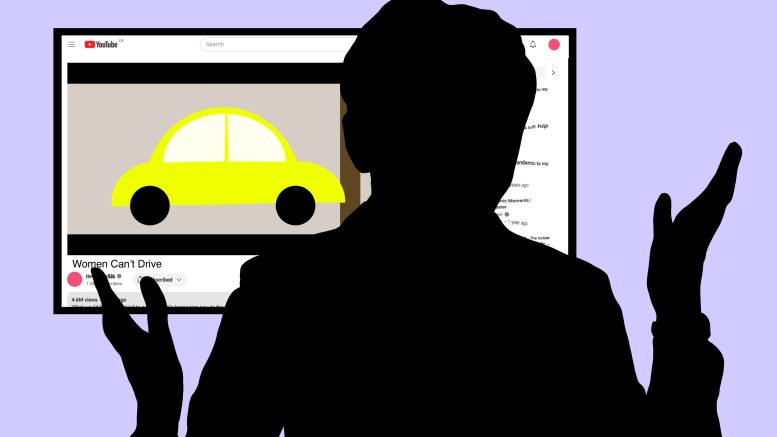Those who have ever had the misfortune of coming across the animated meme of two men sharing tea, saying “women” and laughing maniacally will have likely watched the origin of the insulting meme “women (followed by a tea emoji)” which probably happened around 2022.
Readers may also have noticed “women tea” comments under videos of women where they are doing something supposedly wrong. These videos might show women not knowing what cryptocurrency is or making mistakes, trans people being misgendered or girls doing something silly.
The possibilities are limitless when the internet decides to pass the same misogynistic comment. These videos have gained millions of views, and the mimetic insult has become part of internet lingo that is universally used to shame women.
I don’t want to mock the misogynists who partake in this derogatory meme culture, lecture them or even sympathize with them. I just want to try to understand why they think it is acceptable to litter the internet — and real life — with vile and patriarchal ideas.
Although not drastically different from all the other misogynistic things I have seen on the internet since its inception, this constant and publicly displayed hatred is sickening. The mere thought that people are capable of spewing hatred every day should not be surprising at this point, but it is certainly leaving many of us completely hopeless.
Hopelessness reminds me of Mark Fisher’s Capitalist Realism: Is There No Alternative? That was probably the first critical work that my 2017 nihilistic self found solace in, so rest assured that I am no class-reductionist.
Capitalist realism, according to Fisher, is “the widespread sense that not only is capitalism the only viable political and economic system, but also […] it is impossible even to imagine a coherent alternative to it.” As long as patriarchy and settler colonialism are directly involved in decisions that are made around the world, I don’t think I’m far off equating these harmful ideologies with capitalism.
The manifestation of these ideologies in our everyday lives is certainly different compared to capitalism. Still, when gender equality for women and queer folks is considered a utopian idea, it certainly makes me wonder if the alternatives to patriarchy — which, to many of us, is as simple as a day on the internet without being constantly attacked — are unattainable.
Fisher uses the term “responsibilization,” which was coined by Judith Butler, to make the argument that many of us are passive spectators and first victims of climate change. Therefore, individuals are not responsible for global warming. Rather, the responsibility of it lies in an “impersonal structure.”
For Fisher, this structure is capitalism and its machinery, which includes every big corporation. To me, a 24-year-old cis woman who sometimes reaches the verge of a breakdown after a few hours of scrolling on social media and exposure to online misogyny, the impersonal structure is patriarchy and settler colonialism.
Social media certainly facilitates the spreading of these ideas that result in the infantilization of women and queer folk, domestic abuse, workplace harassment and more.
So, after careful analysis of the flaws of society and considering my mental health, I have stopped arguing with incels on X (formerly known as Twitter). It only ever ends in slut-shaming and me deleting the app, but that is beside the point.
We need to be able to make fundamental, structural changes before dealing with those who are violently anti-women. We need systems in place that will hold Alphabet, Amazon and Meta accountable for their actions that are capitalistic and therefore primarily patriarchal and colonial.
When tangible structural changes improve the online experience for many of us, we will have more faith in a society that treats us equally. Hopefully, then, we can collectively kick the butts of incels.


